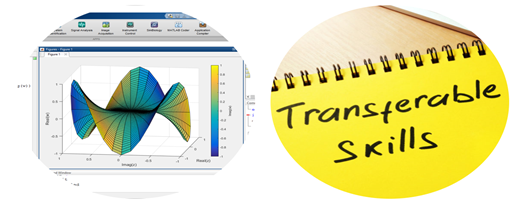My advice for undergraduate students on how to develop technical and soft skills
15/07/2021

Building relevant technical skills throughout university and through work experience are essential when entering the aerospace industry. These skills include; programming and coding, computer programming languages such as Python, C++, C and Java are useful for systems engineering and software development, but not essential in certain areas of aerospace. Programmes like MATLAB and Simulink are also a very beneficial tool that would be useful to learn.
Having a strong mathematical, analytical, and problem-solving mindset is essential for any engineer, as well as having a creative outlook and being an innovative thinker. Having specific attention to detail and a strong awareness of safety and environmental issues is also crucial within the design process, especially regarding future considerations with the UK’s 2050 net zero target.
As well as technical skills, employers also want to know that the applicant has developed a wide range of transferable soft skills, such as project and time management. Communication skills, both verbally and written, are very important in the world of work, and these skills can be drastically improved through university whilst report writing and oral presentations.
I thoroughly recommend making the most of these opportunities and seek help to improve in any ways that you can, it is the perfect time to practice and perfect these skills! The ability to work under pressure and meet deadlines is also something that is very important to employees.
One major benefit from doing an aerospace degree is the affiliation with certain engineering organisations such as the Royal Aeronautical Society with student memberships. These offer vast opportunities for networking with professionals in senior positions within the aerospace sector, attending external webinars and conferences to broaden aerospace knowledge, and a chance to connect with certain mentors who can provide advice and guidance on all engineering aspects. They can help with careers advice, give tips on interview preparation and opportunities that you can get involved with, and provide professional development in terms of becoming Chartered. It also shows that you have a commitment to keeping up to date technical developments and have a good interest in new advancements within the industry, so make the most of these opportunities!
Categories & Tags:
Leave a comment on this post:
You might also like…
Inside the Air Transport Management MSc: Classes, assignments, and group project work
What’s it really like to study Air Transport Management at Cranfield? Adit walks us through a typical day, assignment expectations, and the excitement of hands-on group projects. This is the second of three blog ...
Using Factiva to research a company
If you’re tasked with researching a company, your first port of call might be to search Fame or EBSCO Business Source Complete. Your immediate reaction might not be to look at Factiva. However, for larger ...
How do I write a secondary reference … in the NLM style?
Secondary referencing is used when you’re reading a work which includes a quotation from another author, and you – the researcher – can’t obtain the original source. We always advise, where possible, to try to ...
Reaching new heights: How a Global Excellence Scholarship fuelled my aerospace dreams
Leaving my home in India to pursue an MSc in Aerospace Dynamics at Cranfield University was a leap of faith. Hi, I’m Oliza Kachroo and as an international student, the transition ...
How do I reference…when delivering a presentation?
Just as you cite and reference sources in written work, you should also acknowledge the sources you use or quote in oral presentations. Citing your sources in presentations provides your audience with information about the ...
How do I reference a blog post… in the NLM style?
Whilst blog posts do not fall into the scholarly material category, they can be useful for providing personal insights into a particular area. For example, there may be a high-profile member of an industry who ...





